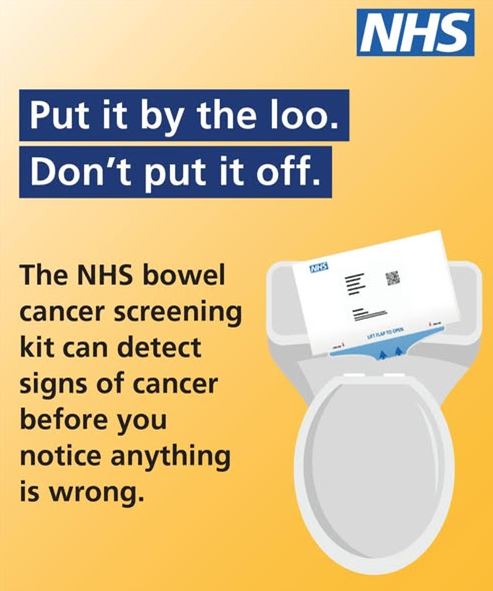Abdominal Aortic Aneurysm Screening
Abdominal aortic aneurysm (AAA) screening is a test to check if there's a swelling in your aorta, which is the main blood vessel that carries blood from the heart to the tummy (abdomen).
AAA screening is offered to all men over the age of 64. Anyone assigned male at birth who is over the age of 64 can have it. Abdominal aortic aneurysm (AAA) screening - NHS
Breast Screening
Anyone registered with a GP as female will be invited for NHS breast screening every 3 years between the ages of 50 and 71. You'll get a letter in the post inviting you.
You will not automatically be invited for breast screening if you are 71 or over. But you can still have breast screening every 3 years if you want to. You will need to call your local breast screening service to ask for an appointment. Breast screening (mammogram) - NHS
British Sign Language (BSL) signed content: Taking part in NHS breast screening - GOV.UK British Sign Language (BSL)
An easy read guide about a health test for women aged 50 and over
Bowel Cancer Screening
Bowel cancer screening is currently offered to everyone aged 50 to 74 every 2 years.
You can also get screening for bowel cancer every 2 years if you're aged 75 or over, but you need to call the bowel cancer screening helpline on 0800 707 6060 and ask for the test.
Cervical Screening
Cervical screening, which used to be called a smear test, is a test to check the health of the cervix and help prevent cervical cancer. It's offered to women and people with a cervix aged 25 to 64.
You'll be invited for screening every 5 years from when you're 25 to 64 years old. You'll get your first invitation a few months before you turn 25.
Diabetic Eye Screening
If you have diabetes and you're aged 12 or over, you'll get a letter every 1 or 2 years asking you to have diabetic eye screening.
Newborn Screening
- The newborn blood spot test (formerly called the heel prick test) is a simple way to check if your baby may have any of 9 rare but serious conditions.
- The newborn hearing screening - If you give birth in hospital, you may be offered a newborn hearing test for your baby before you're discharged. Otherwise it will be done by a healthcare professional, healthcare assistant or health visitor within the first few weeks. Ideally, the test is done in the first 4 to 5 weeks, but it can be done at up to 3 months of age.
- The newborn physical examination - checks for any problems with your baby's body. It's done within 72 hours of them being born, and again when they're between 6 and 8 weeks old.
Getting to know your newborn - NHS
Screening in Pregnancy
- screening for infectious diseases (hepatitis B, HIV and syphilis) - The blood test needs to be done as early as possible in pregnancy, ideally by 10 weeks.
- screening for inherited conditions (sickle cell, thalassaemia and other haemoglobin disorders) - This test should be offered before you're 10 weeks pregnant.
- screening for Down's syndrome, Edwards' syndrome and Patau's syndrome -Screening your baby for Down's syndrome, Edwards' syndrome and Patau's syndrome is offered when you're between 10 and 20 weeks pregnant.
- screening for 11 physical conditions (20-week scan) - The 20-week screening scan, also called the anomaly scan, is an ultrasound scan to look for 11 different conditions in your baby. It also checks your baby's growth. It's usually done when you're between 18 and 21 weeks pregnant.
Screening tests in pregnancy - NHS
